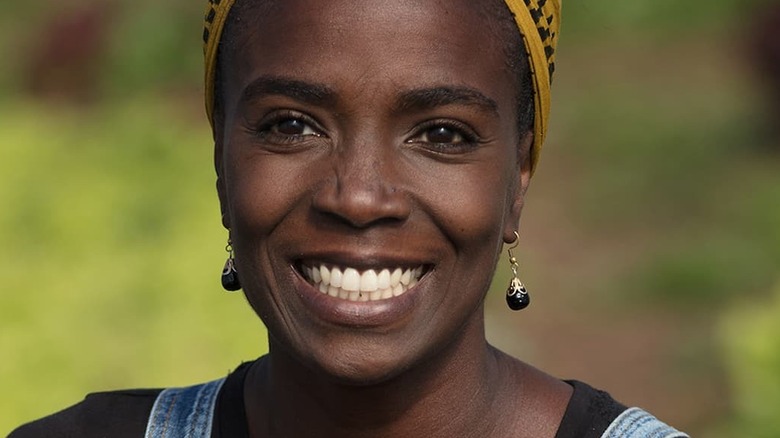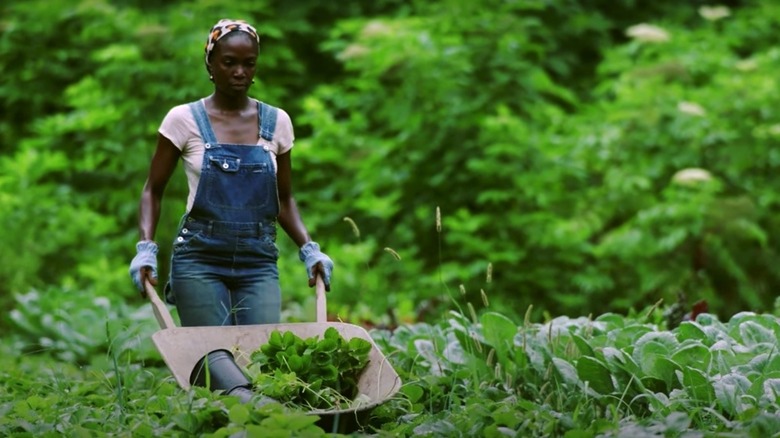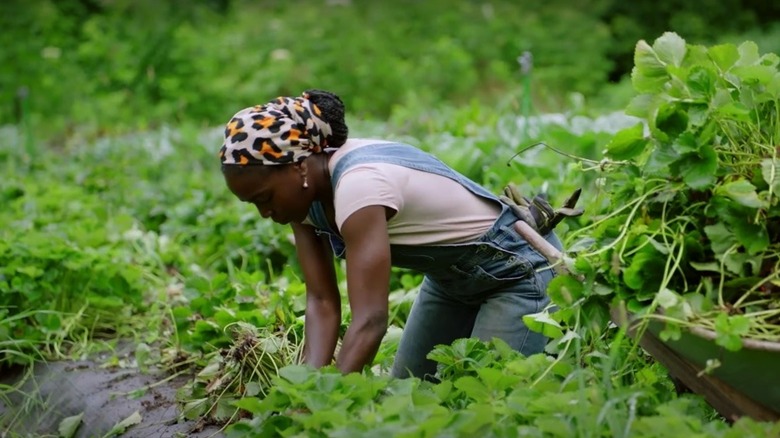How Homegrown's Jamila Norman Is Changing Homesteading As A Black Woman - Exclusive
As the first generation daughter of Caribbean parents, Jamila Norman is looking to change perceptions of what it means to be a farmer.
Coming from a family with a history deeply rooted in agriculture, Norman knows firsthand that Black people — specifically Black women — have been an integral part of the farming industry for centuries. Now, in a modern farming industry where Black representation and visibility is scarce, Norman is embracing her very public role as one of the key figures in the urban farming scene.
After moving to Atlanta and noticing a staggering lack of healthy food options in her historically Black community, Norman decided to be a part of the solution and started an organic urban farm in the heart of Atlanta aimed at promoting wellness through nutrition. Through her work at Patchwork City Farms, she advocates for better food options and education about nutrition aimed at communities of color, and she teaches members of those communities — and communities across the country — how to grow their own fresh fruits and vegetables.
On Magnolia Network's "Homegrown," Norman takes that knowledge on the road and teaches people across the country how to achieve sustainability and wellness through farming their own backyards. In an exclusive interview with House Digest, Jamila Norman discussed her role as a Black woman in farming and shared how she hopes it can help change perceptions of the farming industry as a whole.
Norman hopes her role as a Black farmer can help improve health food access to communities of color
Jamila Norman knows that good nutrition is vital for wellness, and the general lack of awareness regarding the important role that nutrition plays in health is why she considers herself an advocate. Not only does she want to educate people about the importance of good nutrition, but she also seeks to teach them how to properly grow their own fresh, healthy fruits and vegetables — something that all too often seems to be in particularly short supply in communities of color.
"I moved to an area of Atlanta that's a historically Black part of town, and food options were not the best," Norman said. "Having a garden was something that I always wanted to have, and being here and seeing that there's not a lot of food options, but there was also a lot of land and empty green space ... It was like, 'Well, I'll be part of the solution and create that fresh food and try to address fresh food access in my community.' That's what prompted me to start growing food, realizing, 'Hey, this is a need for this community.'"
Jamila Norman is looking to pick up where other Black women before her left off
Though Black women are not traditionally well represented in the farming industry, Jamila Norman insists they have always been there and aims to use her public platform to shine a light on their legacy.
"Black women have always been a part of the farming industry for millennia. It's just visibility," she said. "I'm picking up the torch where others left off and carrying on. It's definitely part of my family legacy. It's a major part of the legacy of the South and Black people in general."
Though Norman has no problem being the one in the spotlight, she wants people to know there are plenty of other Black farmers out there that simply don't have the visibility she has. "I definitely don't ever want to make it seem like I was out here doing something other people weren't doing," she said. "I'm just carrying on in the tradition of what our mothers and grandmothers and great-grandmothers have been doing and being okay being upfront about it."
Stream Season 2 of "Homegrown" now on the Magnolia app and on Discovery+.


